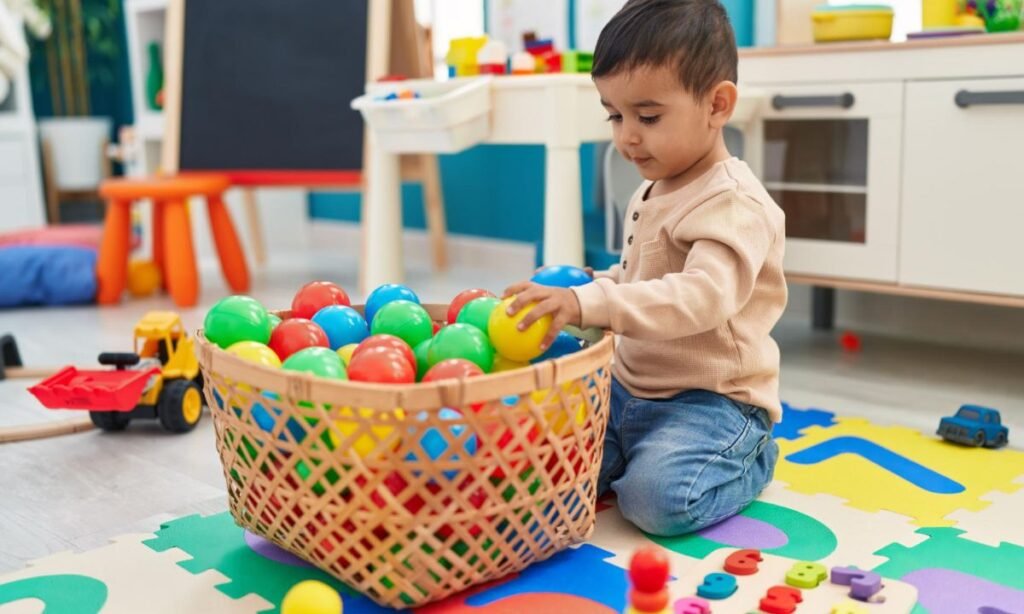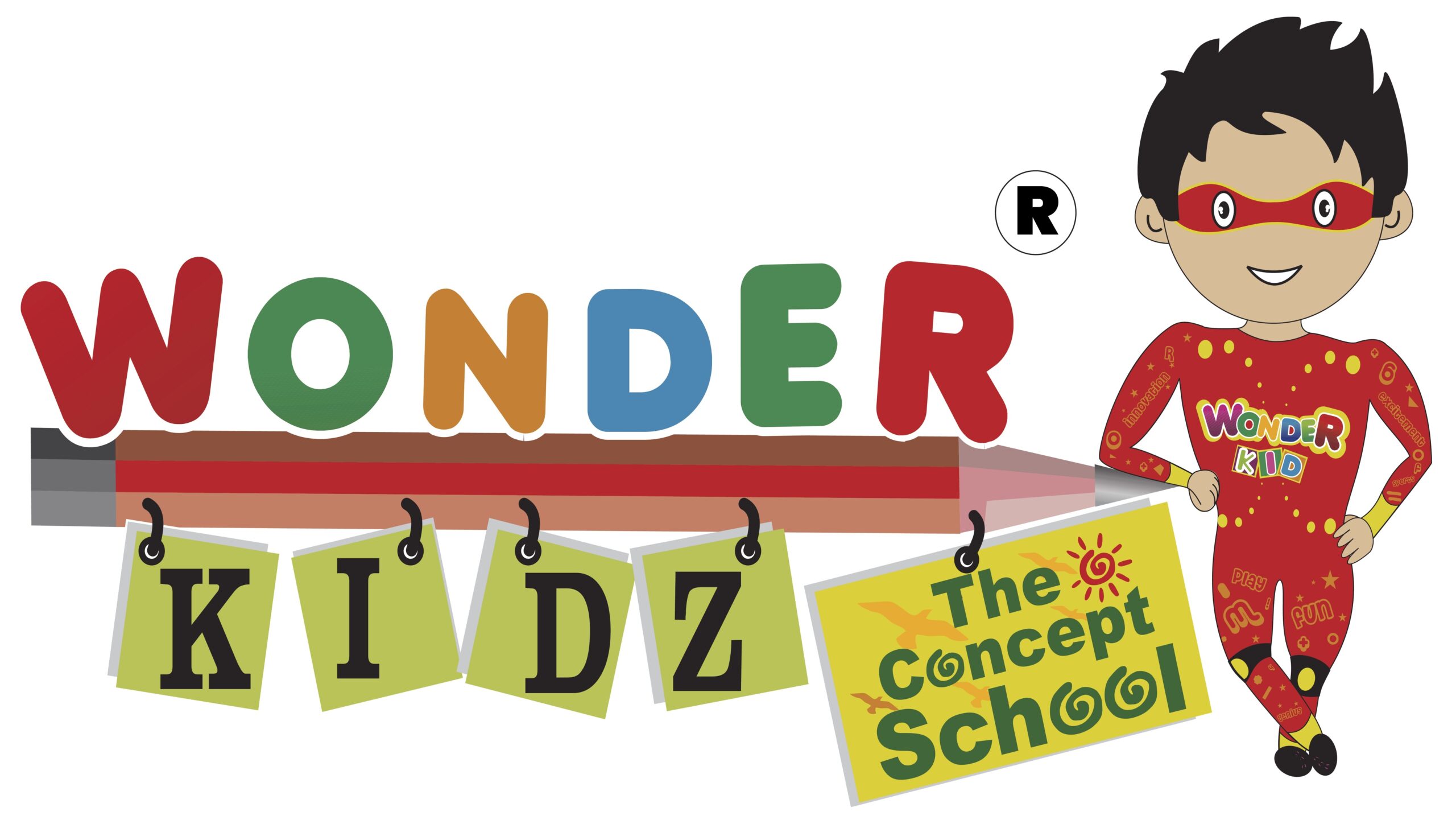
Preschool plays a critical role in the early stages of childhood development, setting the foundation for future academic, emotional, and social success. Often regarded as the first formal step into the educational system, preschool offers children a structured environment where they can learn, grow, and develop vital skills that will help them throughout life. This stage serves as a bridge between home and the structured world of formal schooling. But what is the role of preschool in shaping a child’s future, and why is it considered essential?
Developmental Foundations
Cognitive Development
Preschools provide an environment where children can engage in activities that stimulate cognitive growth. Children are introduced to basic concepts such as numbers, letters, shapes, and colors, allowing them to build their early understanding of the world. Cognitive skills such as memory, attention, and problem-solving are nurtured through various educational games and structured learning activities.
Emotional Development
Preschools also help children manage and understand their emotions. As they interact with peers and teachers, they learn to express their feelings, deal with frustrations, and understand empathy. Teachers guide children through emotional regulation, helping them cope with various emotions in a safe and supportive environment.
Physical Development
At preschool, children are provided with opportunities to engage in physical activities that develop their motor skills. Activities such as cutting with scissors, drawing, playing with blocks, and participating in outdoor games improve both fine and gross motor skills. These activities lay the foundation for more complex physical tasks in later years.
Socialization and Interaction
Building Social Skills
One of the key roles of preschool is to provide a setting where children can interact with their peers. This interaction helps them develop crucial social skills such as sharing, cooperation, and listening. They also learn how to resolve conflicts, which is an essential skill for both school and life.
Cooperation and Collaboration
In a preschool setting, children participate in group activities, which promote teamwork and collaboration. They learn the importance of working together, sharing responsibilities, and achieving common goals. These lessons in cooperation are foundational for future academic and personal success.
Emotional Well-being
Boosting Self-confidence
Preschool helps children develop self-confidence through a supportive environment where they are encouraged to try new things. Small achievements, whether academic or social, are celebrated, reinforcing a positive self-image. This confidence becomes the building block for their future endeavors.
Coping with Separation Anxiety
For many children, preschool is the first time they are separated from their parents for an extended period. This experience helps them build resilience and learn how to cope with separation, which is a vital step in their emotional development.
Preparing for Formal Education
Building Foundational Skills
Preschool introduces children to basic academic concepts, such as counting, reading, and writing, which form the foundation for future learning. These foundational skills, developed in a playful and engaging way, ensure that children are ready for the more formal education they will encounter in kindergarten.
Fostering Curiosity
A good preschool fosters a sense of curiosity in children. By encouraging them to ask questions, explore their environment, and seek answers, preschools help children develop a lifelong love for learning.
Learning through Play
Importance of Play-based Learning
Play is a critical part of the preschool curriculum. Through play, children explore their creativity, imagination, and problem-solving skills. Play-based learning also allows children to develop social skills and emotional resilience in a natural and enjoyable way.
Creative Expression
Art, music, and drama are important components of preschool education. These activities allow children to express themselves creatively while developing their fine motor skills and hand-eye coordination. Such experiences are essential for their overall cognitive and emotional development.
Language and Communication
Developing Communication Skills
Language development is a key focus in preschool. Children learn new vocabulary, improve their sentence structure, and enhance their communication skills by interacting with their peers and teachers. This early exposure to language development sets the stage for future academic success.
Multilingual Advantages
Many preschools offer multilingual education, which provides children with the opportunity to learn new languages at a young age. This exposure to different languages enhances cognitive flexibility and improves problem-solving skills.
Physical Development
Fine and Gross Motor Skills
Preschool activities are designed to develop both fine and gross motor skills. Activities such as drawing, painting, and playing with toys develop fine motor skills, while outdoor activities and physical education help build gross motor skills. These skills are critical for overall physical health and development.
Physical Activities
Preschools often incorporate physical activities such as running, jumping, and climbing. These activities not only promote physical health but also encourage children to develop a love for physical exercise, which is essential for long-term well-being.
Parental Involvement
Importance of Collaboration
A successful preschool experience involves collaboration between parents and teachers. Regular communication ensures that parents are informed about their child’s progress and can support learning at home. This partnership plays a key role in reinforcing the skills and behaviors taught in preschool.
Supporting Learning at Home
Parents are encouraged to continue the learning process at home by engaging in activities that complement what is being taught at preschool. Simple activities such as reading to children, playing educational games, or encouraging outdoor play can significantly enhance a child’s development.
Inclusion and Diversity
Celebrating Differences
Preschools often serve as children’s first introduction to diversity. By interacting with peers from different backgrounds, children learn to respect and appreciate differences in culture, language, and abilities. This exposure fosters a more inclusive mindset and prepares them to navigate a diverse world.
Culturally Responsive Pedagogy
Educators in preschools often adopt culturally responsive teaching methods, ensuring that children’s diverse backgrounds are reflected in the curriculum. This approach helps children feel more connected to their learning and promotes a sense of belonging.
Encouraging Independence
Autonomy and Decision-making
Preschools provide children with opportunities to make decisions and solve problems independently. Whether it’s choosing a game or figuring out how to share toys, children develop autonomy and confidence in their abilities.
Problem-solving and Critical Thinking
Activities that challenge children to think critically and solve problems are essential for developing their cognitive abilities. These skills will serve them well throughout their academic journey and in life.
Benefits of a Structured Routine
Sense of Security
Preschools offer a structured routine that helps children feel secure and know what to expect each day. This sense of stability is essential for their emotional well-being and helps them adjust to the more structured environment of formal education.
Stable Learning Environment
A structured routine also creates a stable learning environment where children can thrive. It allows them to focus on learning while developing time management and organizational skills.
Role of Qualified Educators
Importance of Trained Educators
Qualified preschool educators are essential to delivering a high-quality early education experience. These teachers have specialized training in child development and know how to create an engaging and supportive learning environment for young children.
Personalized Attention
Preschools often have smaller class sizes, allowing teachers to give personalized attention to each child. This individualized approach helps address each child’s unique needs, ensuring they receive the necessary support to succeed.
FAQs about Preschool
1. What age should children start preschool?
Children typically start preschool between the ages of 3 and 5, though some programs offer early preschool for younger children.
2. How does preschool prepare children for kindergarten?
Preschools introduce foundational academic concepts and social skills, which help children transition smoothly into the more structured environment of kindergarten.
3. Is play-based learning effective in preschool?
Yes, play-based learning is highly effective in preschool as it allows children to explore concepts creatively and develop skills in a hands-on and engaging way.
4. How does preschool benefit children socially?
Preschool provides children with opportunities to interact with their peers, develop social skills, and learn how to cooperate and communicate effectively.
5. Are preschools equipped to handle children with special needs?
Many preschools are inclusive and offer support for children with special needs, including specialized programs and trained staff to meet diverse learning requirements.
6. What should parents look for when choosing a preschool?
Parents should look for a preschool with qualified educators, a nurturing environment, a balanced curriculum, and a focus on both academic and social development.
Conclusion
In conclusion, preschool plays a vital role in laying the foundation for a child’s future. From cognitive and emotional development to socialization and physical growth, the experiences children have in preschool prepare them for the challenges and opportunities ahead. The role of preschool goes beyond academics, shaping children into well-rounded individuals who are confident, curious, and ready for the world.
Investing in a WONDER KIDZ Preschool Franchise can be a rewarding decision, both financially and personally. However, it requires careful consideration and planning. If you’re passionate about early childhood education and ready to take on the challenge, it could be the perfect opportunity for you in 2024.If you are interested in becoming a WONDER KIDZ franchisee or would like more information, please (Click Here) or call or WhatsApp at +91 94256 03871.
